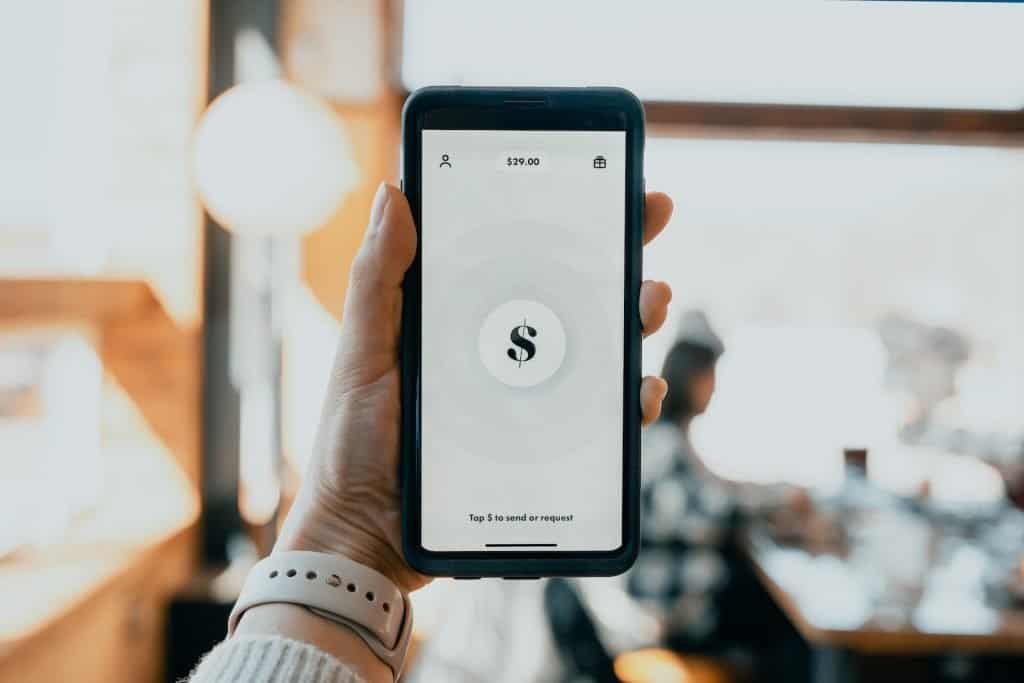Mobile commerce (also known as m-commerce) is described as the “use of handheld devices to perform online transactions.” This includes mobile devices such as smartphones and tablets.
Table of Contents
ToggleIt is becoming a more significant part of the digital marketplace. From mobile banking to in-app purchases, the use of mobile devices is only increasing as more services become accessible from your phone.
Types of Mobile Commerce
There are a growing number of mobile commerce uses. This article will discuss two of the most important ones: online shopping and online banking.
Online Shopping
Online shopping is when an individual uses a mobile device to buy and sell goods online. There are several different ways you can do this.
One of the most common ways to shop online includes purchasing goods on an online marketplace such as Amazon via a social media market.
In-app purchases are also an increasingly important part of online shopping. Services such as Spotify allow consumers to buy premium versions of the application using in-app purchases.
A significant trend going into the future will focus on the user journey across multiple devices (including mobile, desktop, and in-store). This will also integrate a multi-channel strategy to optimize sales conversions.
For example, if a customer places items in the cart on mobile then transitions to desktop, there should be a seamless shopping experience. This is achieved by updating the information in real-time. Many businesses are doing this already, so retail will have to adopt this practice in the future to remain competitive.
Online Banking
Mobile banking allows individuals to access their bank account and make transactions using their mobile devices. Many banks make use of apps that will enable users to check their balance, make payments, and transfer money.
In many cases, these mobile apps will offer more limited services when compared to desktop applications. On the other hand, mobile applications are usually more convenient than desktop applications as they are easier to access. With mobiles here to stay, so are the associated apps, and both of which will evolve going into the future.
Mobile Commerce Trends
Several exciting mobile trends are taking the m-commerce marketplace by storm. We will discuss just some of them today and what they could mean for the future of online commerce.
Cybersecurity
As mobile commerce becomes increasingly prevalent, there are a growing number of security threats to mobile commerce platforms. These include phishing attacks, malware, and denial-of-service (DOS).
Already we are seeing tech such as email address lookup tools, phishing detection software, and two-factor authentication making waves in this space as the threat from cyber-attacks grows alongside the industry.
AR/VR
Augmented reality and virtual reality present some of the most exciting prospects for mobile commerce. However, it is worth defining these technologies since many lump them together.
Augmented reality uses a device to augment a real-world space. On the other hand, virtual reality is distinct from the real world, requiring a VR headset to interact with it.
AR has already found use in environments where visualization is vital – AR models of buildings in construction, for example, or AR in law enforcement. While it has not found as much success as AR, VR has been used by stores such as IKEA to place pieces of furniture in an individual’s home to see if they fit. This will more than likely continue as a growing trend.
IoT
The internet of things (abbreviated to IoT) is a network of devices linked together and exchanging information they have collected. The IoT has some exciting applications for mobile commerce. This is due to the IoT’s ability to share and process data in real-time rather than requiring an employee’s input.
For example, the internet of things has already used some online marketplaces to manage inventory more efficiently. Companies have also used the IoT to improve customer experience by displaying custom advertisements and deals, only possible thanks to the information collected by the IoT. This is definitely a space to watch for the future.
Voice Control
Voice control is a technology that allows you to shop using only your phone and voice. This tool has already found plenty of use on smartphones for performing internet searches. This use for voice control is more commonly known as ‘voice search.’
Related but still distinct from voice search, virtual assistants have also exploded in popularity over the past decade.
Companies interested in expanding their mobile commerce presence should look into platforms such as Siri and Alexa. Both are popular and allow consumers to engage with a business with only their voice. Voice search will probably grow in popularity heading into the future.
Instant Apps
Instant apps are a specific type of app that allows users to access content from the program without installing the program itself. These applications enable users to save space on their devices while still getting the functionality these apps bring.
In the context of m-commerce, instant apps may be used to access content, such as vouchers, and video, without downloading another application. They are a game-changer and will only evolve in subsequent years.
One particular example of this functionality is a parking meter application. Instant apps could allow consumers to get the functionality of this app without downloading something they may only use a handful of times.
Location-Based Services
Location-based services (LBS) are among the more popular trends in mobile commerce. These services use smartphones’ GPS/Wi-Fi capabilities to improve the user experience.
Location-based services have seen two primary uses in mobile commerce. Firstly, companies like Uber and other ride-sharing apps rely on location-based services to connect drivers and passengers.
Another example of location-based services is live travel updates, such as through google maps. LBS allows real-time data to be collected, giving users helpful information such as the weather and traffic in an area.
It has also found use in security. Companies and governments can verify that their employees are who they say they are by utilizing services such as an email address lookup alongside location-based services. LBS will continue to impact mobile commerce.
Integration with Social Media
Social media companies have begun to integrate mobile commerce into their platforms. Platforms such as Facebook now have their marketplaces where individuals can buy and sell goods.
Companies can also use these platforms in several ways. Businesses can use these platforms by offering special deals or using these services as a place to market their product directly to their target audience. Social media will only grow further, and so will its integration with m-commerce.
M-commerce Conclusion
There are a wide variety of ways companies can interact with mobile commerce, and this space will remain one of the essential methods to connect businesses and consumers.
Companies that have used this technology are already seeing incredible gains as more of the digital market shifts from desktops to mobile devices. The future of mobile commerce seems bright as it becomes a more significant part of the global economy.




